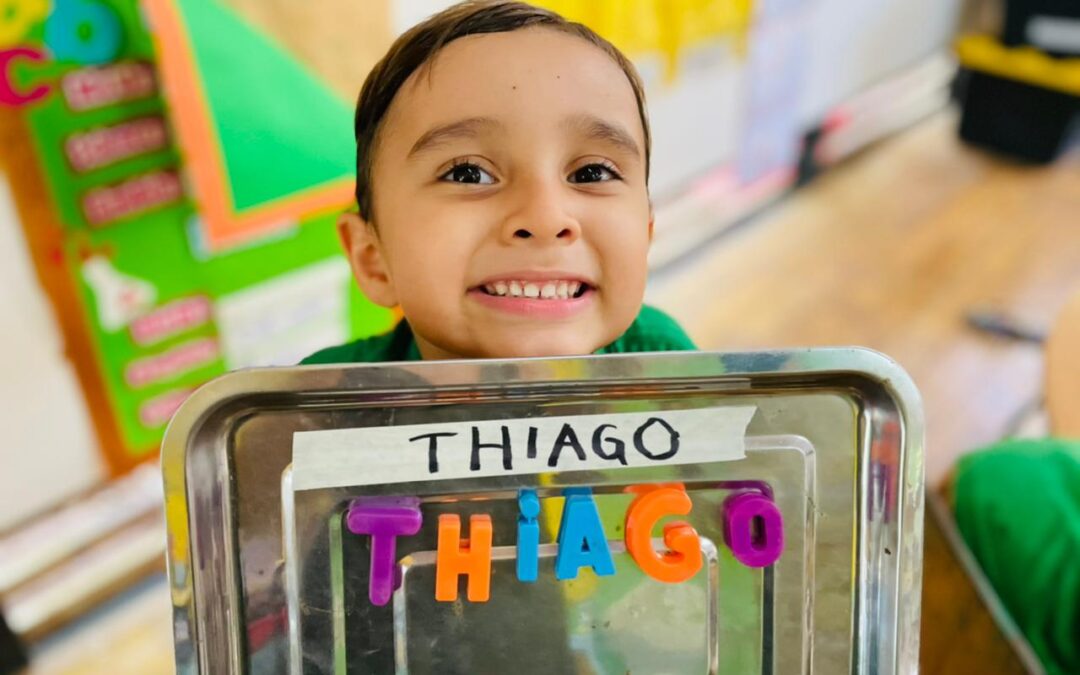
by Angie Briceño | May 18, 2021
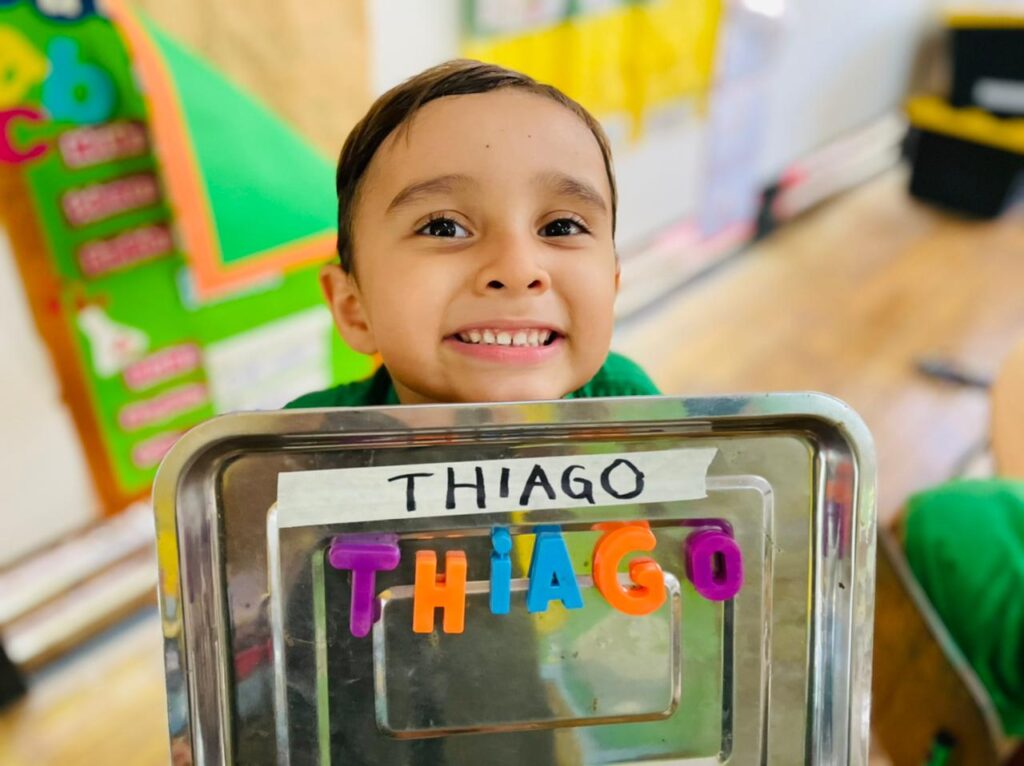
We have reached the end of the first semester of the year of transition to the international calendar and the students have made a great effort despite the difficulties of the bimodality that has occurred on different occasions.
We are aware of the difficult times that our community and the country have been going through during these months and that they have been challenging for students, that is why we want to communicate the importance of attending the parent-teacher conferences that will be held virtually this coming June 9th and 10th. During the parent-teacher conferences you will be able to learn more about the performance of your child. . It is important to be prepared and take into consideration some aspects for these conferences:
- It is a two-way conversation that focuses on the student’s academic performance and emotional development. The conversation should inform the parent of how the student is doing in class and how the student can improve. Make sure you bring questions you can ask the teachers to learn more about your child’s classroom performance and emotional development.
- Just like you, as a parent, the teachers at Futuro Verde also want your child to succeed, that is why during the conferences you will be able to discuss possible areas of growth both academically and in their overall development. It is important for you to be ready to ask questions about how you can support your child at home as well as how you can support your child at school, and together be able to come up with an action plan.
- If you are still not sure about the Futuro Verde´s assessment in your child’s grade, now is a good time to ask about it.
- Share with teachers information about your child, what is your child good at, the areas your child needs more support, areas in which your child is passionate about, and areas your child may not be that interested.
After teacher conferences, the appropriate follow-up is very important:
- Take notes on all the information you received during the conference. What will the teachers be doing to support the student and what will you be doing at home to support your child.
- You can talk to the teachers during the conference and schedule a meeting some time after the parent-teacher conference to follow up on the action plan.
- Remember that parent-teacher conferences are about your child, so be sure to tell them! Tell them what you learned and how they will receive support from both school and home. Ask what he or she thinks about the plan and about the suggestions.
We hope to see you all at the parent-teacher conferences on June 9 and 10 to share with teachers and stay informed. Invitations for the virtual conferences will be sent out closer to the conference dates. Do not miss them!
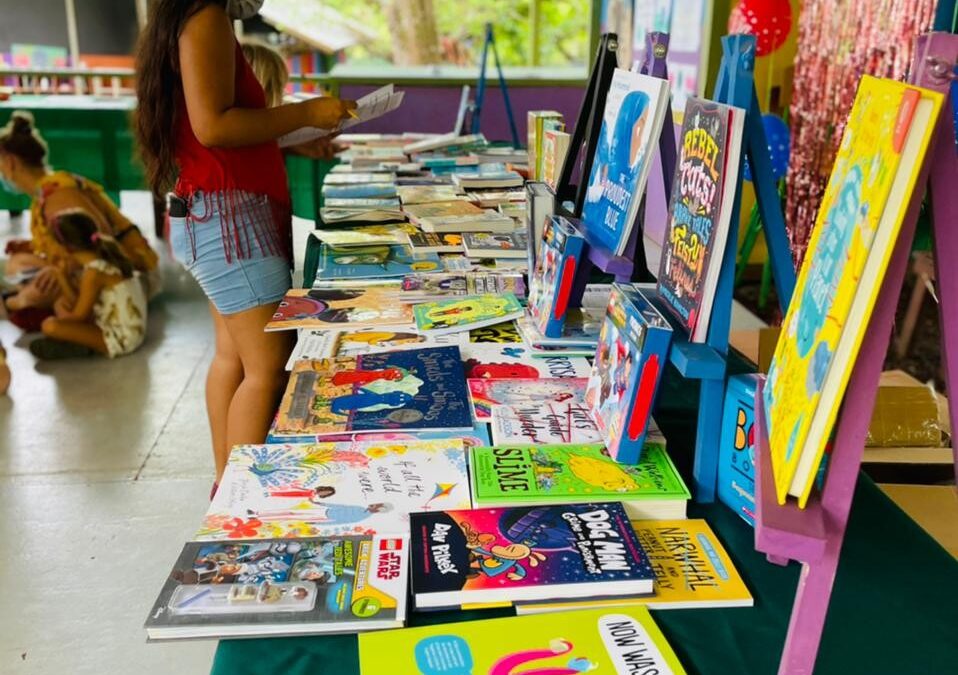
by Hileyn | Apr 23, 2021
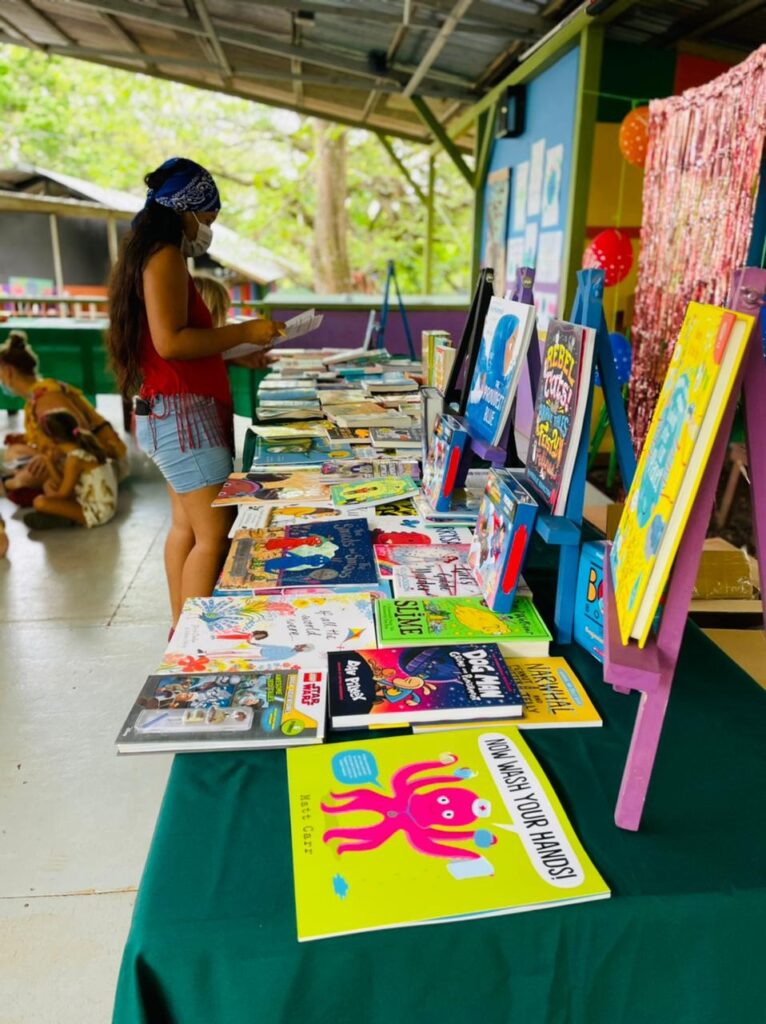
On April 23rd we celebrate International Book Day. It is a commemoration for the promotion of reading, the publishing industry and the protection of intellectual property. Cervantes and Shakespeare (among some other famous writers) passed away on the same day that is also why it became a symbolic date.
Although on this date the objective is to encourage people, especially young people, to discover the pleasure of reading, this is not an easy task. Jiménez Martínez mentions the purpose of encouraging reading in:
Books and their reading give the human being absolute freedom. Hence the importance that our children become readers with the desire to resort, on one hand, to reading as a will and to satisfy their demand for information, and on the other hand, to satisfy the need that both adults and children have to build a world outside the reality in which we live, in which we can give freedom to our fantasy and that allows us to enjoy and fly without any ties. (2004, p.25)
In school, reading is taught as a mechanical act, but by including reading along with a school library and meaningful activities, reading becomes an integral process of the person. While listening to a new story about a favorite subject, the intellect discovers new aspects and points of view. Also the physical and social emotional areas of the person develop as they play or dramatize a story.
Children are not exempt from discovering the world every day, and storytelling is part of this exploring process. That is why children should not be forced to read, but should be motivated to do so in a healthy way, so that their academic performance and personal development can be greatly improved. The child should choose for him/herself the book he/she is motivated to read, in this way he/she will feel the power of freedom.
We have to remember that reading is a right and forcing children and young people to read is useless. The consequence will be that children relate reading with an academic or mandatory moment instead of a moment of leisure and love for reading.
Parents can motivate their children to adopt the habit of reading by following these tips at home:
Being an example
Children observe their environment and learn from it, that is why at home, parents must set an example of reading. It is not possible to transmit a desire for reading if at home there is no time for it. If parents do not show their children that they are also able to take time and read but above all enjoy it, it will be very difficult to transmit it to their children.
In a traditional home if a family takes time to watch television every day, the children will learn what makes them happy and imitate their parents. It’s time to change our perspective and take that time as adults to read at home.
According to Arri ”People who like to read usually have had a family member who has passed on to them a passion for books. Lack of time is no excuse because when you really want something, you find the time to do it” (2012, p.313).
Reading together
Reading is not always an activity that should be done individually, this could cause the children to feel isolated, especially in early years. Reading time can be a great time to spend with the family. When children listen to their parents reading, they understand the message of the story better, so they can also read together and bond through reading.
Make some noise!
Reading aloud could be very beneficial, especially for young learners who are having difficulties during this learning process. It is also useful to teach them the pace and tone of appropriate reading. Sounds and different voices also make a big difference. Goodbye silence! Welcome to the sounds that can accompany our stories and make them more fun and engaging.
Reading aloud extends the attention span and it also helps improve the children´s pronunciation.
Reading should not be an exam or punishment
Sometimes the word exam could be related to stress and anxiety, that is why we cannot turn reading into a questionnaire, the reader has the right to remain silent while reading.
Reading is a prize, lets not condition it as a reward on doing something. “If you don´t read, you won’t have time for videogames”…
Right to choose
Parents can analyze the contents of a book, or the complexity of it, but should not place obstacles when choosing what to read. if it has controversial issues and the young person wishes to have access to this book, it is better to read it and reflect on the subject together, than to deny it. If the reading level is higher, we let the same reader experience and reconsider another.
Remember reading is what can set us free, let our children discover new opinions, places and worlds!
References
Arri, M. A. (2012). Errores de padres en su afán por que sus hijos lean. Boletín de La Asociación Andaluza de Bibliotecarios, 27(103), 312–314.
Jiménez Martínez, Lutgardo. (2004). Bibliotecas escolares: en un lugar de la lectura. Boletin de La Asociación Andaluza de Bibliotecarios, 19(75–76), 135–147.

by Angie Briceño | Jan 5, 2021

You may be wondering what a PTO is, you may never have heard the term, but the answer is easy: it is an organization made up of teachers, staff members and parents that aims to facilitate parent participation in school activities. Parent involvement in student life is extremely important, according to research by PTOtoday.com the benefits for students are innumerable, but among the most important the children are more likely to:
- Attend school regularly
- Have better social skills
- Show improved behaviour
- Be more positive in their attitude towards school
- Complete and fulfill their responsibilities
- Graduate and continue their education
Parents who join the PTO of a school are a role model for their children, because with this simple act they are demonstrating to their child the great importance of education in their lives.
Belonging to the PTO of a school or college brings great benefits to parents as well:
- There is no better way to be connected with school and ways to help
- The functions of a PTO provide opportunities to connect with other parents, teachers and staff, creating open lines of communication where different issues and ideas are addressed to make positive changes in the institution, you are part of the solution to problems and the growth of the institution
- Be more confident in themselves as parents and their ability to help their children learn
- Being part of the growth and change which generates more confidence in the school by being involved
The positive and active participation of parents in the school brings many benefits to students, parents and also the school. This upcoming 2021 school year we are very excited about creating an active PTO to support students and teachers in various activities.
The objective of the PTO at FV is to enhance and support the educational experience at Futuro Verde, develop a closer connection between school and home by encouraging parental involvement, and improve the environment at Futuro Verde through voluntary and financial support. The activities you will be participating in as part of the FV PTO during the 2021 school year will be:
- Model United Nations Club – Fundraising and logistics
- Library activities
- Welcoming to FV 2021 staff/teachers
- Preparation of meals for the monthly FV teacher meetings
- Art exhibitions
- Civic events
- Teacher/staff appreciation week
Register to be part of the Futuro Verde PTO here!
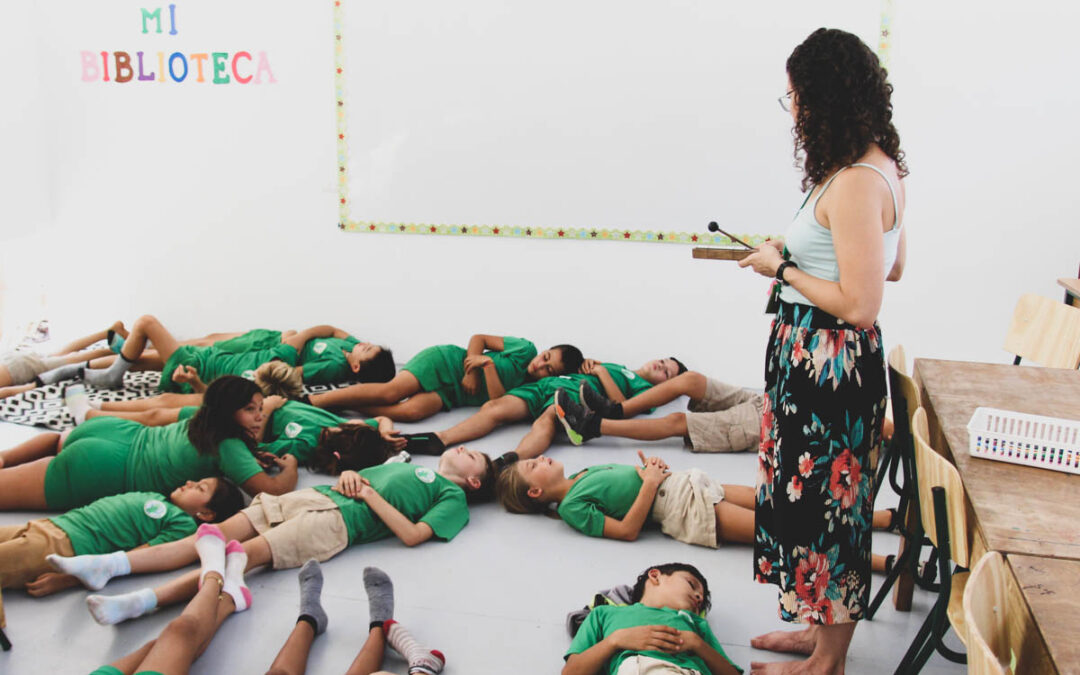
by Massiel Arroyo Sibaja | May 25, 2020
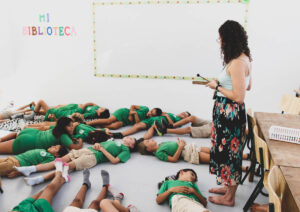 Mind-Body Balance
Mind-Body Balance
The body and the mind are like a machine that works together to identify and interpret what is going on inside and outside of the self. Together, they give us the knowledge and resources necessary to respond according to the situation. This process could be compared to homeostasis: our systems will always tend to regulate and balance themselves.
Therefore, the mind is the keeper of our internal world, and it works to create behaviors that compensate to help release emotional burdens. These burdens can be very conscious, like when we dream about our problems, or they can also be unconscious, like when we feel angry and sad for no apparent reason.
Another way in which we manifest our emotional frustration is through somatization. This means that the body becomes (truly) physically sick. For example, when you fight with someone, you could experience stomach problems like the activation of an ulcer.
So, we can’t choose our emotions. They manifest themselves based on a perceived change in environment. Their presence, therefore, is more determined by events than by will. But when they arise, we can choose how to handle them: we can deny them, suppress them, fake them, conceal them, control them, or simply feel them and express them openly.
Techniques to maintain balance
The first step to maintaining emotional health is to get to know ourselves. This involves training our mind to notice those subtle and not so subtle changes in our body, our emotional expression, and our behavior. An excellent way to get to know ourselves is to keep a journal, record, log, or to write poetry or prose. You can write everything in your diary: there are people who record all of their biological cycles, which helps them be aware of emotional disruptions. Some of the physical changes we might notice are: changes in appetite, alterations in the sleep cycle, strong mood swings, fatigue, or excess energy.
A diary can also help you classify your emotions. Are you able to tell the difference between anger, annoyance, and rage? Your body tells you, but you need to pay attention. If you start to write down how your emotions are manifesting themselves in your body, the next time you have an emotional reaction you will immediately know what emotion you are experiencing.
This technique also works if you want to start remembering your dreams. Dreams are representations of your internal world, and the more we write them down, the more we will train our minds to remember them. This way, we can interpret them better, which allows us to listen to and get to know each other.
After you identify an emotion and the ways that it is manifesting itself, the next step is accepting, processing and constructing a more suitable response. Many times we shove things to the back of our minds, into the graveyard of emotions, either out of fear of what others will say, because it’s not the right place to express it, or because of the way an emotion feels. We call this emotional inhibition. This has its problems, because the body accumulates anything that it cannot process in its search for balance, and this accumulation wreaks havoc. Imagine the pile of emotional skeletons we still have!
Acceptance
Accepting your emotions means that you agree to live your emotions in their full expression. It also means accepting that each feeling has a function in adapting to the environment and in preserving the body. For example, fear has an adaptive function because it tells you that there is a potential danger and that you need to be alert. Sadness and joy have a social communicative function because they allow others to know your moods and to empathize with them. Surprise has a motivational function because it encourages us to find out more about what surprises us.
When we accept an emotion, we simply let it express itself. We do not suppress it or become permanently attached to it. It is important to remember that emotions are dynamic and ever-changing states of being. When we are faced with an intense emotion, we feel it too much and it often clouds our vision. Therefore, don’t make important decisions if you are in a moment of intense emotion. Repeat to yourself, “this emotion will also pass, and another emotion will come”.
Emotional processing refers to activities that get rid of emotional energy, such as writing, singing, dancing, talking to someone, connecting with a character or TV series, playing sports, spending time with your pet, and other forms of expression, such as crying, screaming, punching a pillow, or sleeping.
Just like everything in life, we need routines that help us stay on track and be effective. We need to find our own ways of releasing emotions. And these must be varied, because routines can also become boring. It’s important for you to find a variety of activities to express yourself. You can try art therapy, dance, and movement activities like yoga and other sports, or music. You can also look for activities that make you reflect, question and interpret the thoughts and behaviors you are having with an emotion. You can do this by writing, talking to someone, or doing meditation or mindfulness exercises.
Do you know your ways of expressing emotions?
Here are some techniques that you can try yourself. You can also adapt them for younger children.
Link: https://www.holistic-mindbody-healing.com/emotional-release-technique.html
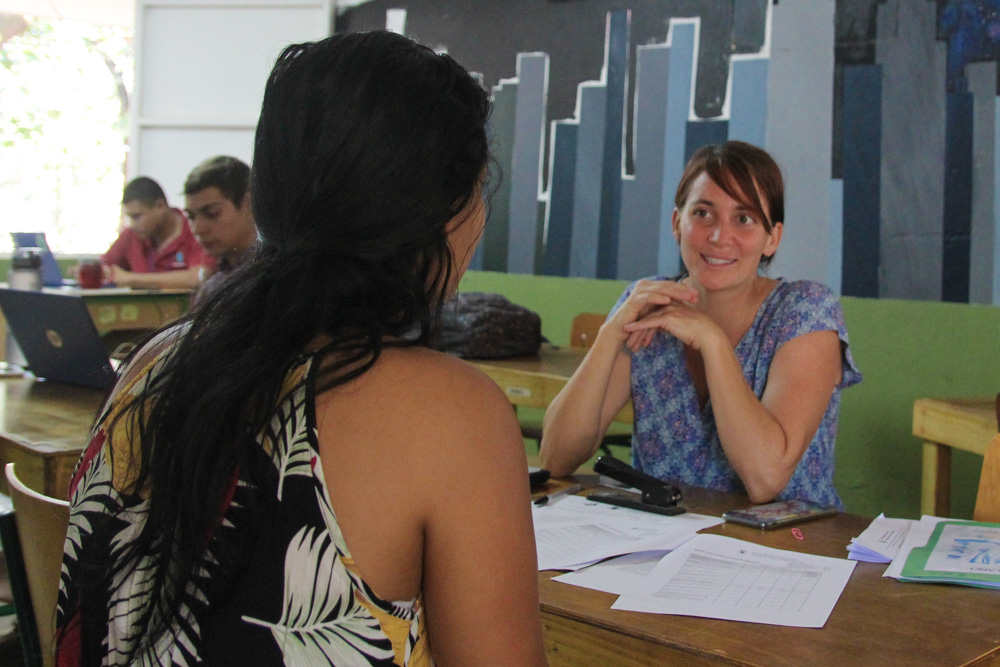
by Katie Chiaverini | May 4, 2020

Conferences offer the opportunity for families and teachers to discuss student progress, share the report card, discuss student strengths and areas of growth and to allow time for parents to ask important questions and share with teachers valuable information regarding their child. During the COVID-19 Pandemic from March 17th until now, all Futuro Verde students and teachers shifted learning to an online delivery. We have continued educating our students with our online program that fully complies with curricular and grade-level requirements. Futuro Verde also created a modified rubric for evaluation purposes that fairly accounts for student learning while also taking into consideration the challenges inherent to the global and local crisis. Following our online education model, we will move ahead with our trimester I parent-teacher conference plans, but in a modified online format.
As a staff and school, we have tried several different formats for online collaboration among teachers, administration and students, including the two we have found most popular and user friendly, Zoom and Google Hangouts. At this point, teachers and families can decide which method will work best whether it be Zoom, Google Hangouts, or phone calls. If anything changes, we will provide updated information but at this time you can get a head start by downloading Zoom on your phone, tablet, or computer. Follow this link to sign up for this free application and be ready to speak with your child’s teacher on May 19th or 20th. More information will be sent out soon regarding the scheduling of conferences, how to access your child’s report card and any additional technical support that you might need assistance with to successfully connect with your child’s teacher.
We remind you that one way to keep up on your child’s work and progress is through their Google Classroom account. You can receive regular messages through the platform but we also recommend sitting down with your child to look over their to-do lists, feedback on assignments and grades. In the primary years, teachers will continue communicating with families on a regular basis through Google Classroom, Google Hangouts, Seesaw, emails or phone calls. We know that not just one communication method works for all so we are trying to accommodate different needs.
At this time, we are noticing that students are being pushed to sharpen their “soft skills” which include things like communication, time management, and organization. Our modified online rubric accentuates these soft skills by giving weight to students who show effort, creativity and resilience as well as timeliness and communication, while continuing to evaluate content mastery. We hope that we can find a “silver lining” in the crisis and focus on developing these other areas which we know build character and more balanced human beings. As teachers and administrative staff, we are definitely being given the opportunity to develop new skills and strengthen those we already possess. Learning is definitely a life-long process and we are on that journey together right now!
We look forward to taking the time to celebrate your child’s growth during such a difficult time and also to work together as a team to identify ways in which we can help them be even more successful. As the age old saying goes….it takes a village to raise a child… and in this crisis this saying rings more true than ever.
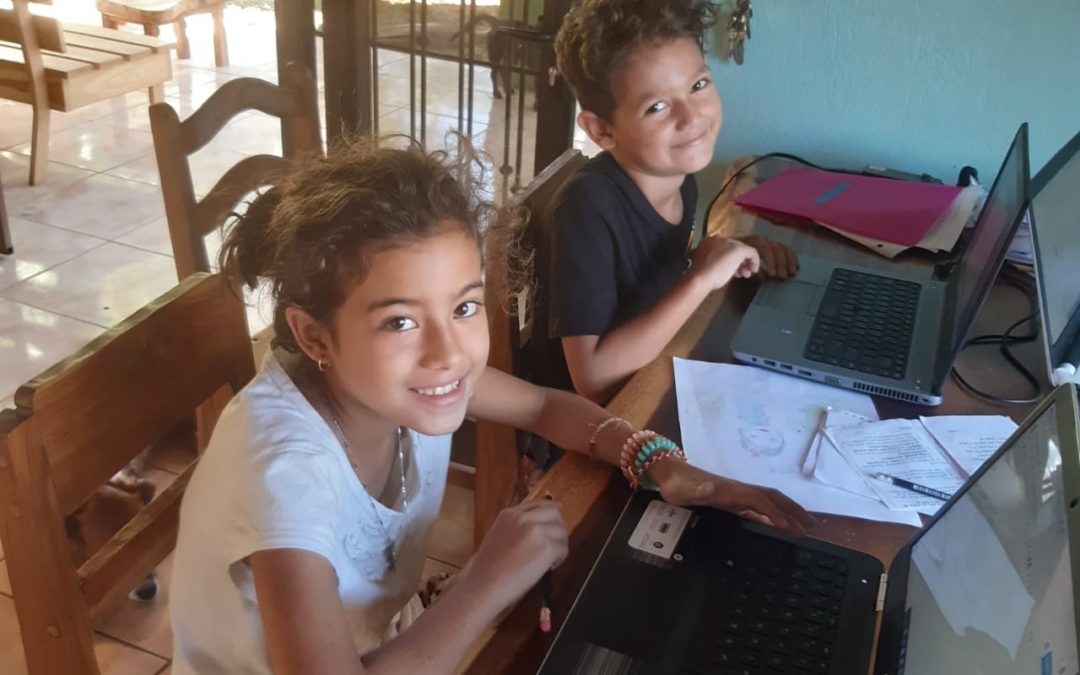
by Lural Ramirez | Mar 31, 2020
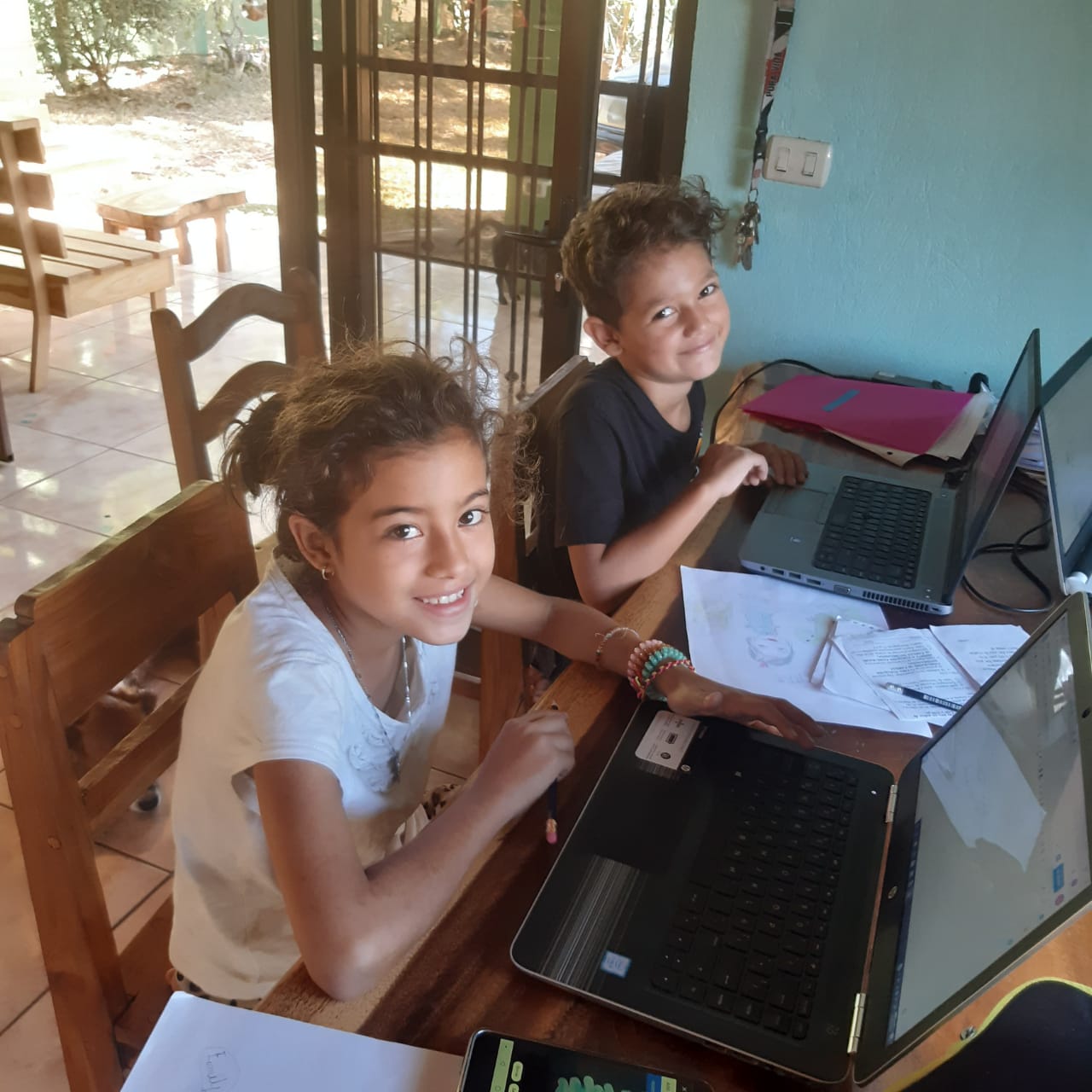
Futuro Verde has been pleased with the roll-out of our online learning program in response to the novel coronavirus, COVID-19. Our teachers have taken on the new challenge with enthusiasm and love- eager to continue to support students and provide stability and consistency in a time of such global uncertainty. But it is our families and our students who have left us absolutely blown away by their adaptability, support and commitment to their children’s learning! Together we truly are stronger and we will get through this difficult time and back to regular school operations as soon as is possible!
FAQs regarding Futuro Verde Online Learning:
My child is new to English or Spanish (or both) or has a learning support need. How is Futuro Verde addressing those needs in online programming?
All Futuro Verde teachers are with us and online- including our language support specialist and our special education teacher. Both specialists have created innovative and helpful structures to support student in their classes, to provide individual support and to continue to help teachers as they work to differentiate learning online and make it accessible to students of all abilities.If your child needs further support please contact our specialists directly:
Anika Hodel, Language Specialist: anika@futuro-verde.org
Alannah Anglin, Special Education Teacher: alannah@futuro-verde.org
I am worried about my child’s well-being during this difficult time. Does the school still offer psychological support and counseling during online programming?
Absolutely! Times like these are moments when we all need emotional support and our school psychologist, Massiel Arroyo, is here to help our students, families and staff!
Supports include:
- Mindfulness classes with intentional emotional supports for ALL students
- A Futuro Verde Facebook group especially for families needing emotional support. Parenting, supporting learning at home and managing stress related to the impact of this pandemic on us as individuals, as a family and in our work or businesses is so very important at this time and Massiel is here to support parents too!
- Personal contact coordinated by Massiel and done with the support of our administrative and leadership team to check-in on families regularly and make sure our community stays well as a group and as individuals and that everyone receives the support they need.
I appreciate Futuro Verde’s efforts to implement online learning, but we miss regular school days. When will school start again?
We will get back to regular school days as soon as the public health emergency has passed and the Costa Rican government gives us the green light to go back to normal life! We can’t wait for this to happen and look forward to seeing our students very soon!
Does Futuro Verde have a plan to sustain online learning over time if the pandemic and social distancing efforts must continue beyond the original return date of April 13th?
Absolutely! Our COVID-19 protocol includes scaffolded implementation over time and teachers are prepared to deal with attendance, assessment and long-term scheduling of online learning, if needed. But, we are all hoping for a quick return to school as soon as safety permits us to be back together again! For more details on our policies for attendance, assessment and long-term scheduling, please review our website.
How will student grading be affected during online learning? Will my child still be able to graduate and get credit for the part of the school year they spend online?
Yes, your child will continue to receive instruction, be assessed by teachers and receive due credit for their learning and growth and development! That is the biggest benefit of keeping your child in a temporary online learning program during a global emergency like the one we are currently living. Even when the world feels turned upside down, your child will continue to progress in their studies and keep their options for the future wide open! Given the challenges of online learning, Futuro Verde has developed an online grading policy that generously takes into account the challenges online learning can present and is ensured to appropriately support our students for success!











